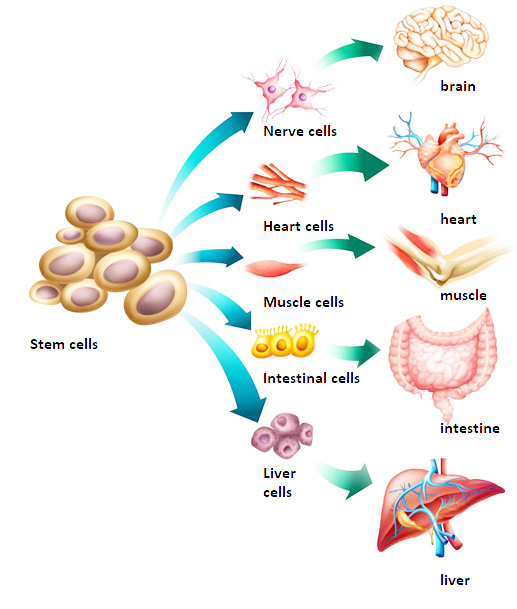Autism does not end in childhood, and many adults continue to seek effective ways to manage challenges while building on their strengths. Autism treatment adults focus on improving daily functioning, emotional well-being, and independence through evidence-based therapies and practical support strategies. By understanding available options, individuals and families can make informed choices that align with personal goals.
Treatment approaches may include structured therapies like cognitive behavioral therapy, social skills training, and occupational therapy, as well as lifestyle interventions that support communication, stress management, and overall quality of life. Some adults may also benefit from medication to address co-occurring conditions such as anxiety or depression.
Exploring these treatments highlights the importance of tailoring support to each person’s unique needs. With the right combination of therapies and strategies, adults on the spectrum can strengthen coping skills, improve relationships, and enhance their independence.
Evidence-Based Autism Treatments for Adults
Research highlights structured behavioral methods, adapted cognitive strategies, and targeted skill-building programs as the most effective approaches for autistic adults. These treatments focus on reducing distress, improving daily functioning, and supporting greater independence.
Behavioral Therapies for Adults
Behavioral interventions remain a core component of autism treatment. They often use structured techniques to increase adaptive behaviors while reducing those that interfere with daily life. Applied Behavior Analysis (ABA) has been widely studied, though in adults, approaches are typically adapted to focus on practical life skills and personal goals.
Common strategies include task analysis, where complex activities are broken down into smaller steps, and positive reinforcement, which encourages desired behaviors. These methods help adults build consistency in routines, manage transitions, and improve problem-solving.
Behavioral therapies also emphasize independence. For example, structured support can help with employment readiness, time management, or self-care. The focus is not only on reducing difficulties but also on developing skills that enhance quality of life.
Cognitive Behavioral Therapy Approaches
Cognitive Behavioral Therapy (CBT) is one of the most studied treatments for autistic adults, especially for managing anxiety and depression. Adapted CBT takes into account differences in communication, sensory sensitivity, and social understanding. Sessions often use concrete language, visual supports, and structured practice to make strategies more accessible.
Key elements include identifying unhelpful thought patterns, learning coping techniques, and practicing relaxation skills. For autistic adults, therapists may also incorporate role-play exercises, visual schedules, or written guides to reinforce learning.
Evidence shows that CBT can reduce anxiety symptoms and improve emotional regulation. It is most effective when therapists adjust the pace, use clear examples, and focus on real-life situations relevant to the individual’s daily challenges.
Social Skills Training Programs
Social skills programs target communication, relationship building, and navigating social environments. These interventions are structured, often delivered in small groups, and emphasize practice in real-world settings. Adults may work on conversational turn-taking, interpreting nonverbal cues, or managing workplace interactions.
Programs frequently use modeling, feedback, and role-play to reinforce learning. Some also integrate technology, such as video modeling or virtual practice scenarios, to support skill development.
Research indicates that structured social skills training can improve confidence in social interactions and increase participation in community or workplace activities. The focus remains on practical application, ensuring that skills learned in sessions transfer to everyday life.
Support Strategies and Lifestyle Interventions
Adults with autism benefit from structured support that addresses work, daily living, and health management. Practical tools and targeted interventions help improve independence, reduce barriers, and enhance quality of life.
Vocational and Occupational Support
Employment plays a central role in independence for adults with autism. Many face challenges with communication, sensory sensitivities, or adapting to workplace expectations. Vocational programs provide structured training and job coaching to bridge these gaps.
Supported employment models pair individuals with job coaches who offer on-site guidance. These coaches assist with task learning, communication strategies, and workplace adjustments. Over time, support may be reduced as the individual gains confidence.
Occupational therapy also helps build skills needed for daily living and work. This includes time management, problem-solving, and handling sensory environments. Employers can further assist by offering flexible schedules, quiet work areas, or written instructions.
Key supports often include:
- Job readiness training
- Workplace accommodations
- Mentorship and coaching
- Structured routines
These approaches increase job retention and promote long-term stability in employment.
Medication Management
While there is no medication that treats autism itself, some adults benefit from prescriptions that address co-occurring conditions. Common targets include anxiety, depression, attention difficulties, and irritability.
Physicians often prescribe selective serotonin reuptake inhibitors (SSRIs) for anxiety or depression. Stimulants may help with attention-related challenges, while antipsychotic medications are sometimes used for severe irritability or aggression.
Medication decisions require careful monitoring. Dosages may need adjustment over time, and side effects must be tracked closely. Regular follow-up with healthcare providers ensures treatment remains safe and effective.
It is important that medication be combined with behavioral or therapeutic supports. This integrated approach helps manage symptoms while promoting skill development and independence.
Assistive Technology Solutions
Assistive technology provides tools that support communication, organization, and daily functioning. These solutions range from simple devices to advanced digital platforms.
For communication, speech-generating devices and text-to-speech apps help individuals express themselves more effectively. Visual scheduling apps and reminders support time management and reduce stress in daily routines.
Noise-canceling headphones, sensory-friendly lighting, and wearable devices can also reduce sensory overload. These tools make environments more manageable and improve comfort in public or work settings.
Examples of commonly used technologies include:
| Category | Example Tools |
| Communication | Speech apps, AAC devices |
| Organization | Digital planners, reminder apps |
| Sensory support | Noise-canceling headphones, calming wearables |
The right combination of tools depends on individual needs and should be tailored through assessment and trial.






Leave a Reply